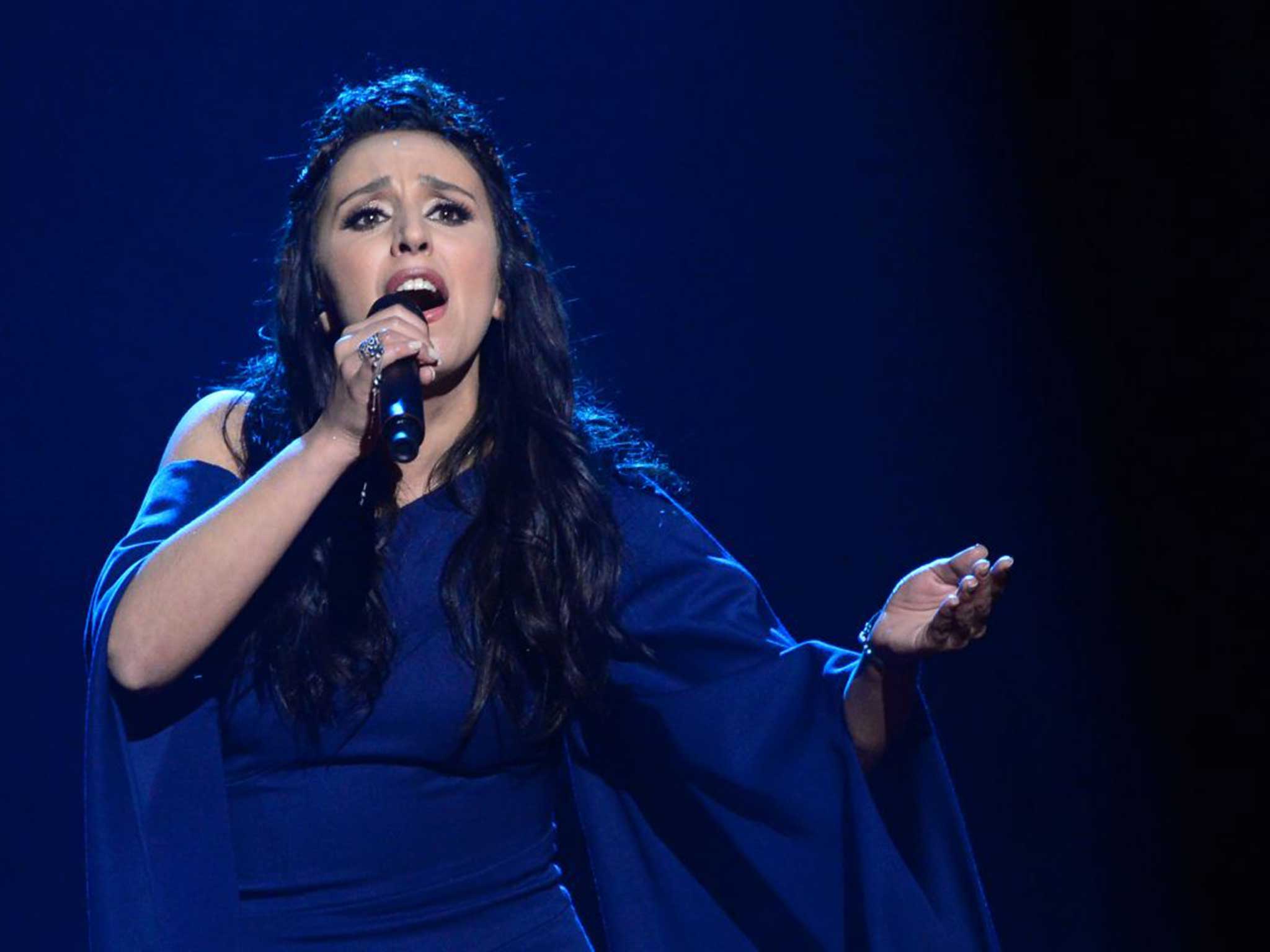Russian officials threaten to boycott next Eurovision after victory for ‘political’ Ukraine entry
Crimean Tatar Jamala won the contest with her song '1944', described by Russian media as a 'highly provocative' allusion to the recent conflict in Crimea

Russian officials have suggested the country could boycott the next Eurovision song contest over what they see as the politically-motivated victory of Ukraine’s entry “1944”.
The winning song was a slow-paced ballad by Jamala, a 27-year-old Crimean Tatar, and Ukraine said its title and lyrics referred to the ethnic cleansing of her people under the Soviet dictator Josef Stalin.
Russia, whose own entrant Sergey Lazarev went into the competition as the bookmakers' favourite, had tried to get Ukraine’s song banned from the competition, describing it as a clear political statement over the annexation of Crimea in 2014 and as such a violation of the contest’s rules.
Ukraine was trailing Russia based on public votes alone – a fact not lost on Russian media – but won with 534 points once the decisions of each nation’s expert jury had been taken into account. Australia came second with 511, while Russia had to settle for third.
Maria Zakharova, spokeswoman for the Russian Foreign Ministry, wrote in a bitter Facebook post that the next Eurovision winner might as well be about the conflict in Syria.
She proposed, in English, the lyrics: “Assad blood, Assad worst. Give me prize, that we can host.”
As victors, Ukraine wins the right to host the competition next year, but a prominent Russian politician suggested there would be no point making the journey to Kiev.
Speaking to the state news agency Ria Novosti, Franz Klintsevich, the deputy chairman of the Federation Council Committee on Defence and Security, said: “It was not the Ukrainian singer Jamala and her song 1944 that won the Eurovision 2016, it was politics that beat art.
“If nothing changes in Ukraine by next year, then I don't think we need to take part.”
The Russian MP Yelena Drapeko blamed Lazarev’s failure to win on the “information war against Russia” and the “general demonisation” of the country.
She told the TASS news agency: “We are talking about… how everything with us is bad, how our athletes are all doping, our planes are violating airspace – all of this, of course, shows [in the Eurovision result].”
And Alexey Pushkov, the head of the State Dumas Foreign Affairs Committee, wrote on Twitter that the result showed Eurovision had “turned into a place for political battles”.
He suggested Russia should sing next about the “martyrs of Odessa”, a reference to the pro-Russian separatists who died in clashes with Ukrainian government supporters in May 2014.
The lyrics of Jamala’s song make no overt reference to modern times. The verse, sung in English, read simply: “When strangers are coming, They come to your house, They kill you all, And say ‘We’re not guilty, we’re not guilty’.”
Yet many Russian media reports, where they did cover the result, pointed to the “political innuendo” involved. RT described Ukraine’s entry as “highly provocative and politicised”.
Sputnik International, the English-language outlet for the state news agency, noted that the Russian entrant “was leading the polls in Europe in the run-up to the grand-finale”. “He has stolen the hearts of European music lovers with his skillful singing and his bright performance,” it added.
A report on state TV news channel Rossiya 24 suggested new voting rules, combining jury scores with a public phone-in, “allowed organisers to amend the results as they saw fit”.
Other Russian media questioned how the extravagant song contest could be held in a country where "there is a hole in the budget, a war is being waged in the east and in the capital there is often disorder”. RIA Novosti noted that Vitali Klitschko, the former boxer and mayor of Kiev, had already begun work on “security in the capital” for next year.
But the result was wildly celebrated in Ukraine itself, where people hailed the spotlight on Stalin’s brutal treatment of Crimean Tatars – including Jamala’s own great-grandmother.
In the space of three days in May 1944, all 200,000 Tatars, who then made up a third of Crimea's population, were put on trains and shipped off to Central Asia on Stalin's orders. Thousands died during the gruelling journey, or starved to death upon arrival in the hostile terrain.
"This song is about our tragedy ... and I hope that people heard this," said Emine Ziyatdinova, a 27-year-old Crimean Tatar who was among those celebrating the win at a Tatar restaurant in Kiev.
The UK’s entry, “You’re Not Alone” by Joe and Jack, finished third-last. CeCe Sammy, a vocal coach and chair of the UK’s expert jury, told The Independent the pair were nonetheless “incredible” and “inspired a whole new young generation with their performance”, Britain’s best since Blue performed in 2011.
“I think politics did play a part in the voting this year,” she said. “This doesn't come as a surprise and is something that has been influencing the competition for many years.”
Sammy said Ukraine was “in my opinion probably not the strongest vocal in the competition”, but added: “Let’s not forget that the public made the final decision, which demonstrated how the competition is being made more transparent and fair.”
Join our commenting forum
Join thought-provoking conversations, follow other Independent readers and see their replies
Comments